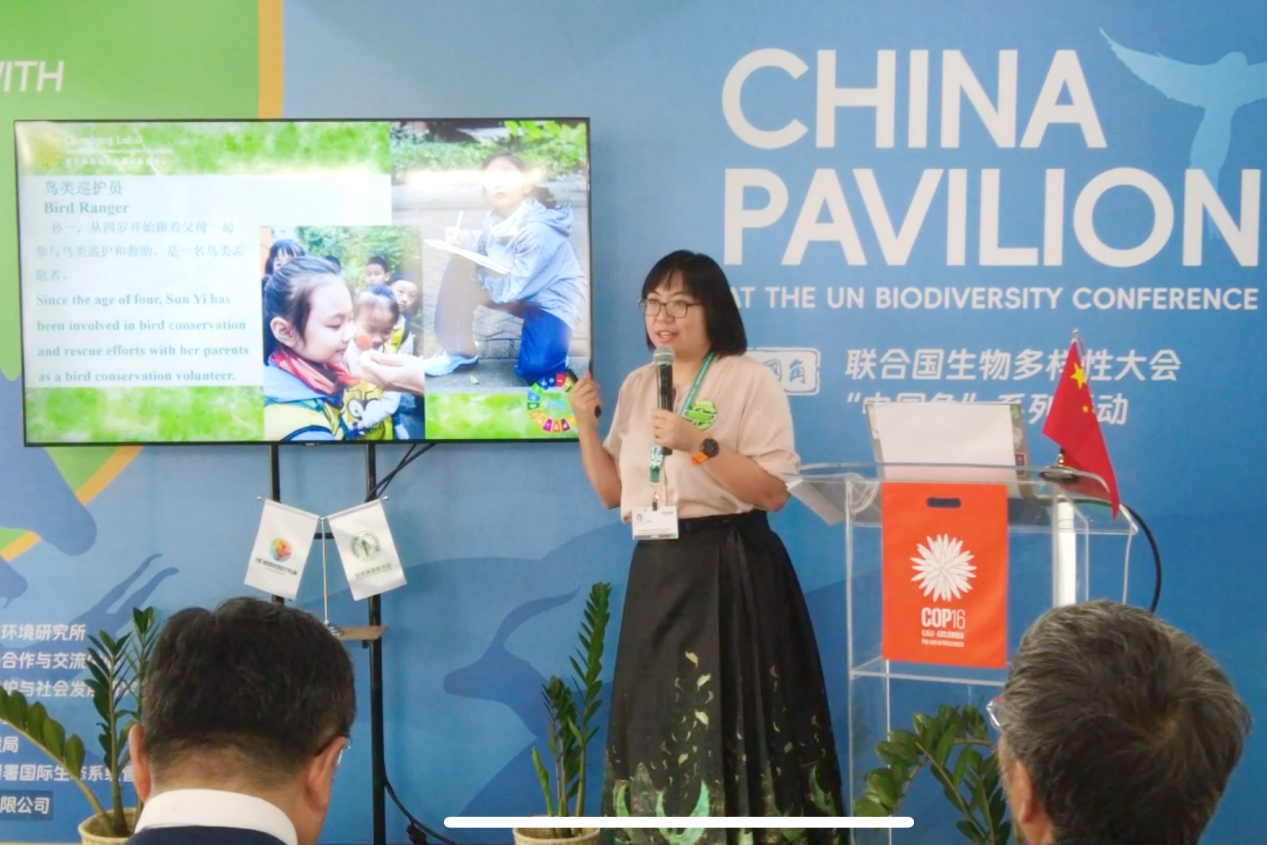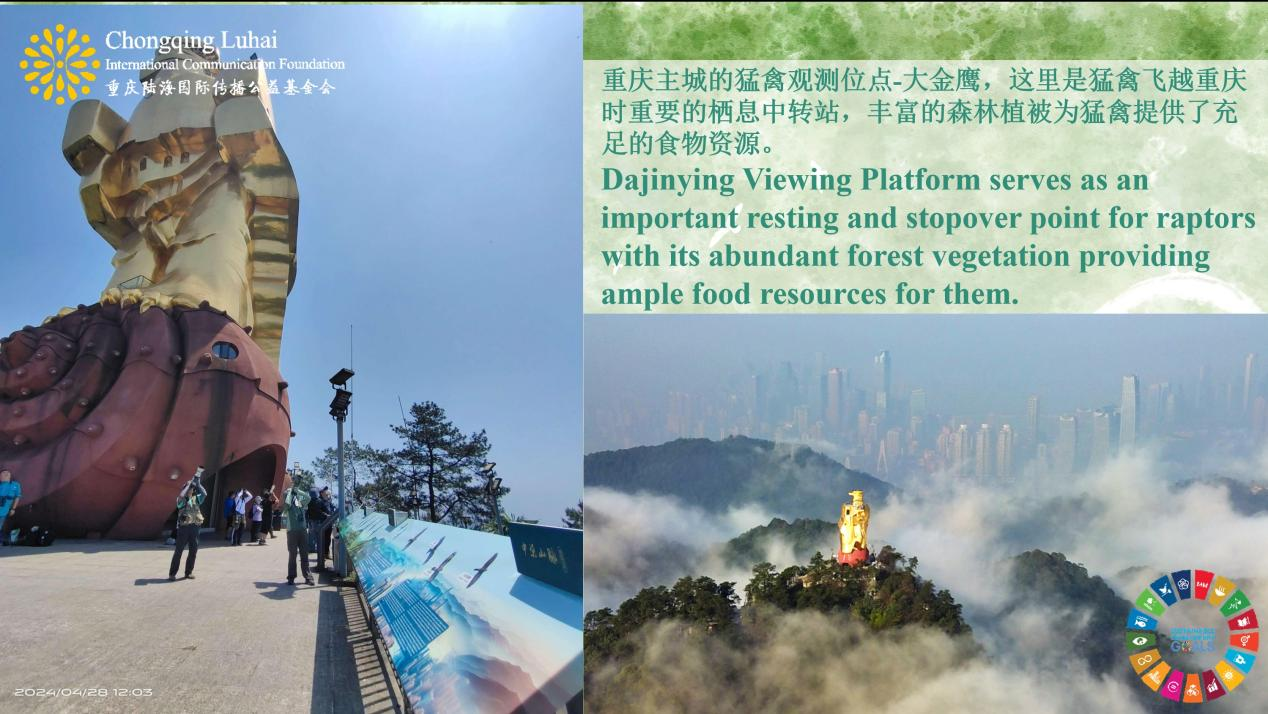 Bridging News
Bridging News
'The Eagle City' Chongqing Gains Spotlight at COP16 in Colombia
Chongqing - On October 23, at the 16th Conference of the Parties to the United Nations Convention on Biological Diversity (COP16) in Colombia, Deputy Secretary-General Chen Can of the Chongqing Luhai International Communication Foundation presented on "The Eagle City: Urban Biodiversity Protection Action."
Chen's talk highlighted Chongqing's innovative efforts in urban biodiversity. It premiered a new promotional video, introducing Chongqing's vision for the harmonious coexistence of cities, nature, and people on the global stage. This marks the Foundation's second major international presentation of "The Eagle City" following COP15.

Deputy Secretary-General Chen Can of the Chongqing Luhai International Communication Foundation presented at COP16. (Photo/Chongqing Luhai International Communication Foundation)
Chongqing, located in China's northeast-southwest mountain ranges—one of the world’s most distinct folded mountain zones, alongside the Appalachians and Andes-Rockies—is home to over 30 million people. Its unique geography creates a migratory corridor for tens of thousands of raptors across 30 species each year. The eagles fly through Chongqing en route to breeding grounds in Mongolia, Russia, and Northeast China and wintering sites in Southeast Asia and Australia. This unique migration corridor has earned Chongqing its title, the "City of Soaring Eagles."
Chen introduced Chongqing's unique geography and the city's role as a migration route for various raptors, underscoring the collaborative efforts driving this biodiversity initiative. "From building conservation hubs to engaging the public, we have united over 217 volunteer teams, created 18 conservation hubs, and engaged 20,000 volunteers in more than 8,000 activities since 2018," Chen shared, emphasizing Chongqing’s commitment to biodiversity through community engagement. Chen desired further partnerships with international NGOs, businesses, and local communities worldwide to enhance conservation efforts, charitable projects, and cultural exchange.

Chen Can's presentation on "The Eagle City: Urban Biodiversity Protection Action." (Photo/Chongqing Luhai International Communication Foundation)
In her concluding remarks, Chen welcomed international NGOs to join Chongqing’s initiatives, including joint conservation activities and youth engagement events focused on raptor observation. Andrey Laletin from the Global Forest Coalition’s Russian office commented, “I’m amazed by Chongqing’s forest coverage. Russia’s forests offer a great habitat for raptors, and Chongqing's commitment to forest conservation through local NGOs is impressive.”
After the session, Chen discussed with Hatem Ben Belgacem from the Tunisian Environment Agency, who shared Tunisia's efforts in raptor research and expressed interest in collaborating with the Foundation to build a global raptor protection network. Belgacem admired Chongqing’s achievement in maintaining urban biodiversity in a metropolis of over 30 million people. Carla Zavala from the Amazon Conservation Association in Peru also expressed enthusiasm for collaboration, inviting Chen and his team to visit their office in Lima for an exchange in early November.
Through its involvement in COP16, the Chongqing Inland and Sea Foundation not only showcased Chongqing's biodiversity efforts but also sought to build a global network for raptor conservation and foster dialogue with conservationists from diverse regions, showcasing Chongqing’s ecological values on an international stage.
(Wang Zhipeng, as an intern, also contributed to this report)
 Related Stories
Related Stories